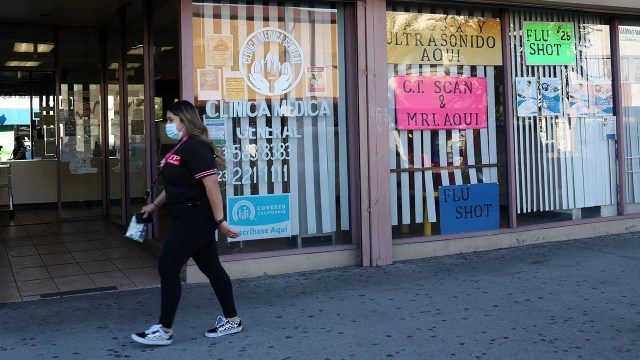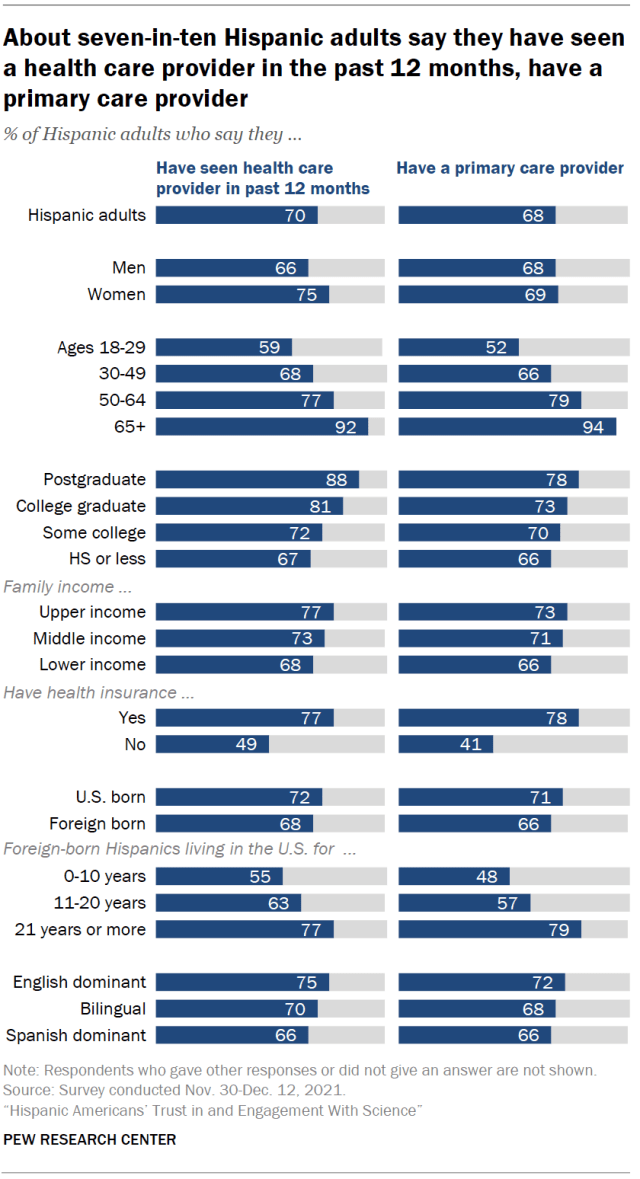
Hispanic Americans have long faced health care challenges in the United States, including lower health insurance rates and less access to preventative care.
Language and cultural barriers, as well as higher levels of poverty, are among the social and economic factors contributing to disparate health outcomes for Hispanic Americans. These disparities were apparent during the early stages of the COVID-19 pandemic, when Hispanics were far more likely than White Americans to have died from the virus.
Pew Research Center conducted this analysis to highlight Hispanic Americans’ attitudes about and experiences with health care. We surveyed U.S. adults from Nov. 30 to Dec. 12, 2021, including 3,716 Hispanic adults (inclusive of those who identify as any race). A total of 14,497 U.S. adults completed the survey.
The survey was conducted on the Center’s American Trends Panel (ATP) and included an oversample of Black and Hispanic adults from the Ipsos KnowledgePanel. Respondents on both panels are recruited through national, random sampling of residential addresses. This way nearly all U.S. adults have a chance of selection. The survey is weighted to be representative of the U.S. adult population by gender, race, ethnicity, partisan affiliation, education and other categories. Read more about the ATP’s methodology.
Here are the survey questions used for this analysis, along with responses, and its methodology.
This study was informed by a group of advisers with expertise related to Black and Hispanic Americans’ attitudes and experiences in science, health, STEM education and other areas. Pew Research Center remains solely responsible for all aspects of the research, including any errors associated with its products and findings.
This analysis includes additional information from sources including KFF and the U.S. Census Bureau. Further information about these sources can be found through the links in the text.
Here are five key facts about Hispanic Americans and health care, based on a 2021 Pew Research Center survey of Hispanic adults and other sources:
Hispanic adults are less likely than other Americans to have seen a health care provider recently and to have a primary care provider. Seven-in-ten say they’ve seen a doctor or other health care provider in the past year, compared with 82% among Americans overall. Hispanics are also slightly less likely than Americans overall to say they have a primary care provider (68% vs. 76%).

Health care access among Hispanic immigrants differs markedly based on how long they have lived in the U.S. More recent arrivals are less likely than those who have been in the country longer to have seen a doctor recently and to have a primary care provider. For example, 48% of Hispanic immigrants who have been in the U.S. for a decade or less report having a primary care provider, compared with 79% among those who have been in the U.S. for more than two decades.
Recent arrivals make up a declining share of Hispanic
The post 5 facts about Hispanic Americans and health care appeared first on Illinois Cares RX.